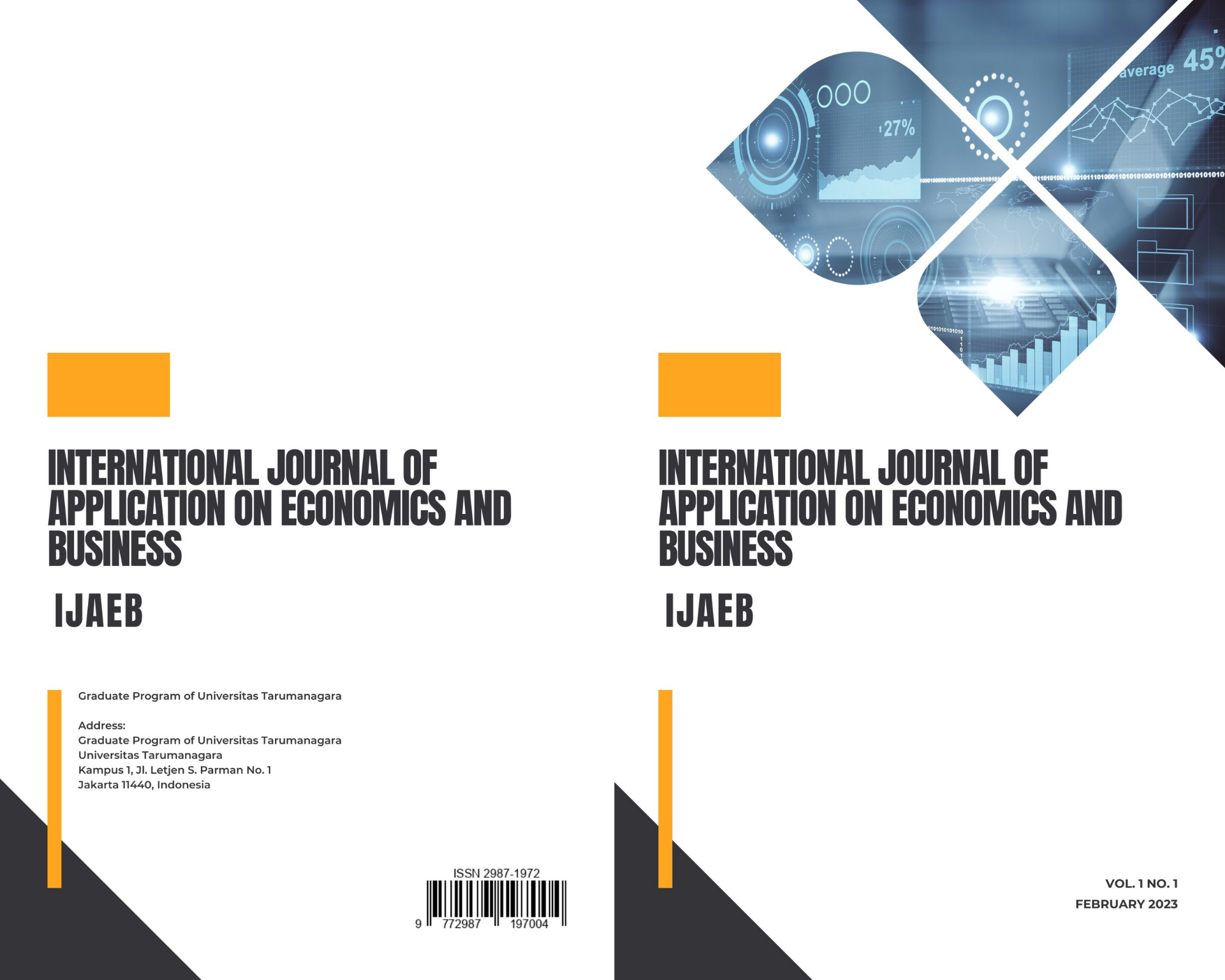The Effect of IFRS Adoption, Firm Performance, Audit Quality, Leverage, and Firm Size on Foreign Ownership
Main Article Content
Abstract
IFRS and IAS are internationally accepted accounting standards issued by the IASC/IASB with the aim of uniform accounting standards throughout the world. In diversifying their investments, in addition to understanding the financial statements, investors also need to understand the firm performance and audit quality to increase confidence that the investment will generate profits in the future. The purpose of this research is to determine whether the IFRS adoption, firm performance, and audit quality will significantly affect foreign ownership. The method applied to process research data is a quantitative-descriptive method with unbalanced panel data of eighteen companies registered in the manufacturing sector from 2017-2020. From the results of multiple regression analysis using SPSS, it is known that IFRS adoption has a positive and insignificant effect on foreign ownership. Meanwhile, based on the research results, it is known that the firm performance and audit quality show significant positive results on foreign ownership.
Article Details
Section

This work is licensed under a Creative Commons Attribution-NonCommercial-ShareAlike 4.0 International License.
This journal provides immediate open access to its content on the principle that making research freely available to the public supports a greater global exchange of knowledge.
IJAEB by Graduate Program of Universitas Tarumanagara is licensed under a Creative Commons Attribution-NonCommercial-ShareAlike 4.0 International License.. Permissions beyond the scope of this license may be available at https://journal.untar.ac.id/index.php/ijaeb
References
Mita, A.F., Utama, S., Fitriany, F. and Wulandari, E.R., "The adoption of IFRS, comparability of financial statements and foreign investors’ ownership", Asian Review of Accounting, vol. 26 no. 3, pp. 391-411, Aug. 2018, doi: 10.1108/ARA-04-2017-0064.
Bajaher, M., Habbash, M. and Alborr, A. "Board governance, ownership structure and foreign investment in the Saudi capital market". Emerald.com. https://www.emerald.com/ insight/content/doi/10.1108/JFRA-11-2020-0329/full/html (accessed Oct. 19,2021).
Yatim, P., Iskandar, T.M. and Nga, E, “Board attributes and foreign shareholdings in malaysian listed firms.” Journal of Management and Governance, vol. 20 no. 1, pp. 147-178, Mar. 2016, doi: 10.1007/s10997-014-9301-1.
Dewanti, D. K., and Kiswara, “Studi Perbandingan Tingkat Kepatuhan Adopsi International Financial Reporting Standard (IFRS) Di 12 Negara.” Diponegoro Journal of Accounting, vol. 4 no. 3, pp. 245-258, Oct. 2015.
Sulistiyowati, L.N., Robby, S.D., dan Adi G., “Pengaruh Konvergensi Ifrs Dan Kepemilikan Asing Terhadap Timely Loss Recognition.” Jurnal Akuntansi, vol. 1, no. 2, pp. 92-115, Apr. 2018, doi: 10.25273/inventory.v1i2.2435.
Miletkov, M.K., Poulsen, A.B. and Wintoki, M.B. (2014), “The role of corporate board structure in attracting foreign investors.” Journal of Corporate Finance, vol. 29, pp. 143-157, Dec. 2014, doi: 10.1016/j.jcorpfin.2014.06.005.
Handayani, Fauziah T. and Agustine Ekadjaja, “Pengaruh Wcm Dan Leverage Terhadap Kinerja Perusahaan Pada Perusahaan Manufaktur Tahun 2017-2019.” Jurnal Multiparadigma Akuntansi, vol. 3 no. 2, pp. 882-893, Apr. 2021.
Yuliyanti, L., “Pengaruh Kinerja Perusahaan Terhadap Harga Saham Perusahaan Automotif dan Component di Bursa Efek Indonesia.” Jurnal Dinamika Akuntansi dan Bisnis, vol. 1 no.1, pp. 1-11, Mar 2014.
Fachruddin, W., Syamsul B., and Angelia P., “Analisis Faktor yang Mempengaruhi Kualitas Audit dengan Prosedur Audit sebagai Pemediasi.” Jurnal Ilman, vol. 5 no. 2, pp. 1-13, Sept. 2017, doi: 10.35126/ilman.v5i2.13.
Centre for Financial Reporting Reform. “Audit Overshight and Quality Assurance” Cfrr.worldbank.org. https://cfrr.worldbank.org/focus-areas#Accounting-and-Auditing-Education (Accessed in Oct. 19, 2021).
Sarunggalo, Merry Katili Sastro, dan Sylvia Veronica Siregar, “Hubungan Kualitas Audit dengan Peluang Investasi dan Manajemen Laba.” Jurnal Akuntansi dan Auditing Indonesia, vol. 16 no. 1, pp. 33-47, Jun. 2012.
Hayati, R. (2020, 6 29), “Pengertian Penelitian Kausal, Ciri, Kelebihan, Kekurangan, dan Contohnya.” Penelitianilmiah.com.https://penelitianilmiah.com/penelitian-kausal/ (accessed Oct. 19,2021).

